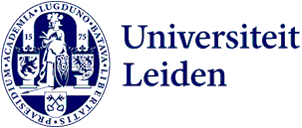University & Faculty Councils and Programme Committees
The university council and faculty councils are democratically elected co-participation bodies that represent both students and staff of the university and its faculties. Co-participation also takes place at departmental level through programme committees.
The University Council
The role of the university council is to critically observe and advise the Executive Board and, when applicable, to assist the board with important decisions. The powers of the University Council are laid down in the Higher Education and Research Act (WHW) and the University Council Regulations (both only available in Dutch).
Faculty Councils
Every faculty has a faculty council. After the university council, the faculty council is the second highest co-participation body within the university. Faculty councils consist of both staff and student members. Find out more under your faculty tab or in the organisational structure.
Programme Committees
Every programme has a programme committee. Within programme committees, lecturers and students come together to discuss the education provided by the programme. Programme committees provide both solicited and unsolicited advice to programme boards, faculty boards and faculty councils, concerning the quality of education, the course and examination regulations (OER) and educational facilities. If further information is available about your programme committee, this can be found under your programme tab.
Playing a role in co-participation?
Are you interested in playing an active role in co-participation at Leiden University? To gain a clearer picture of the various co-participation bodies, you are welcome to attend their public meetings. For more information about co-participation via the university and faculty councils, you can contact the parties that are active within these councils. You could also consider founding your own party. If you would like to become a member of a programme committee, get in touch with your programme’s own committee.
Co-participation
If you want to have a say in matters that concern education, you can join the Faculty Council or one of the Programme Committees.

About the Faculty Council
The Faculty Council is the representative body of our faculty, whose role it is to criticaly follow the Faculty Board, advise and sometimes participate in decisions on important issues. Both staff and students are represented. During elections it will be determined who will serve on the Faculty Council. Each month the Faculty Board and Council meet to consider matters such as finance, personnel, education and facility services.
Agendas and minutes can be found on the Dutch students website page of the Faculty Council.
Members & contact
The current members of The Faculty Council can be found in the organisational structure.
If you want more information, have questions or are dissatisfied with a certain situation at the faculty, please contact us via FWN-FR@science.leidenuniv.nl.
Follow the Faculty Council on Facebook.
About the Programme Committees
Each study programme has its own programme committee, consisting of teachers and students. It is the most important body within the programme where specific problems can be raised. he programme committee is called opleidingscommissie or OC in Dutch. If international staff or students participate in an OC, English is spoken during the meetings.
A OC is a legally determined co-participation body. It is set up for a separate study programmes or a group of programmes . The OC has an independent position within the study programme and is responsible, among other things, for conducting course and programme evaluations. In addition, the OC advises on education and examination regulations and other important matters concerning education. Due to its composition and working method, the OC is the most important body where students can raise specific problems and can contribute to improving the quality of education.
An OC therefore has an important control function, has to give its approval to certain matters and gives advice for improvement. If necessary, the OC can be a thorn in the side. It contributes constructively to improvements in courses, but also thinks along about the main lines of the curriculum, for now and for the future.
Members & contact
The compositions of the programme committees change annually. You can find the current compositions and contact details of the Faculty of Science programme committees in the organisational structure.
